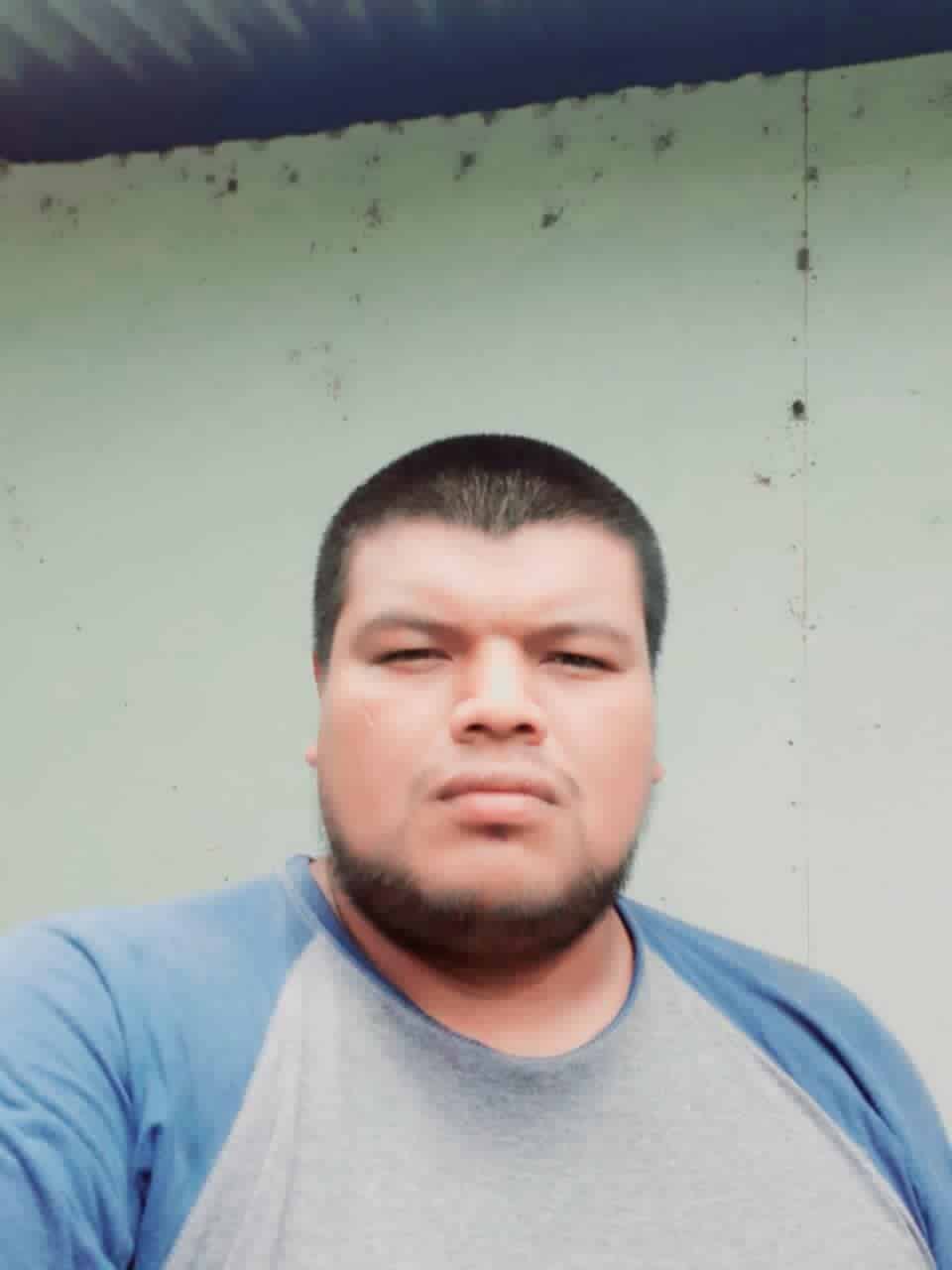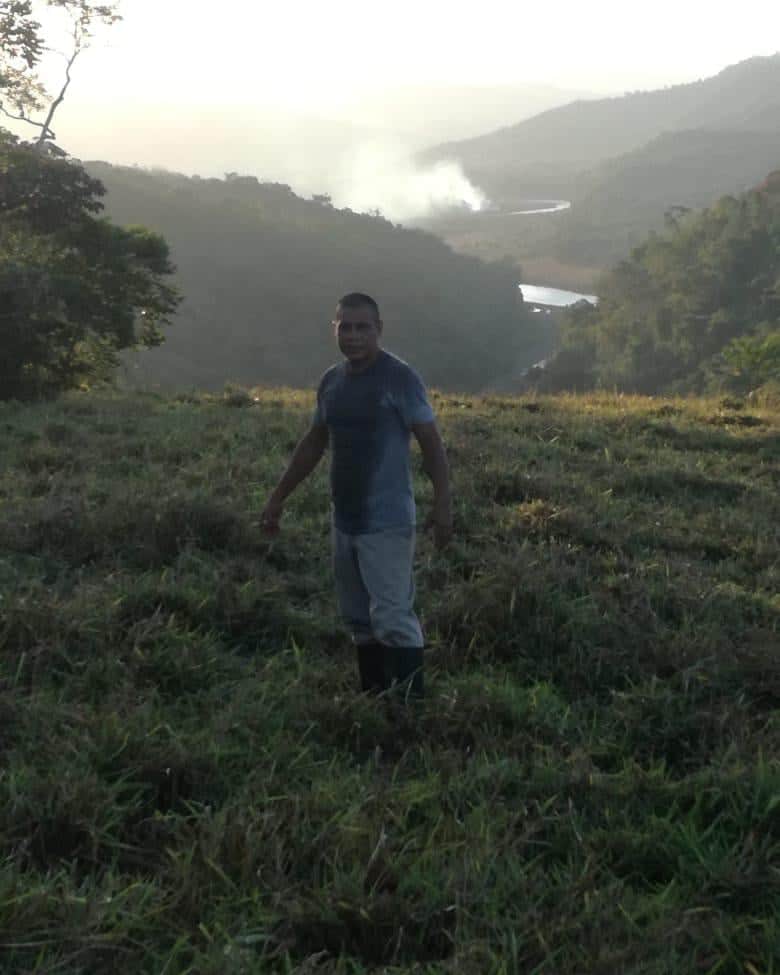WITNESS RADIO MILESTONES
Roundup on Repression: On the continuing IPHRD attacks
Published
5 years agoon
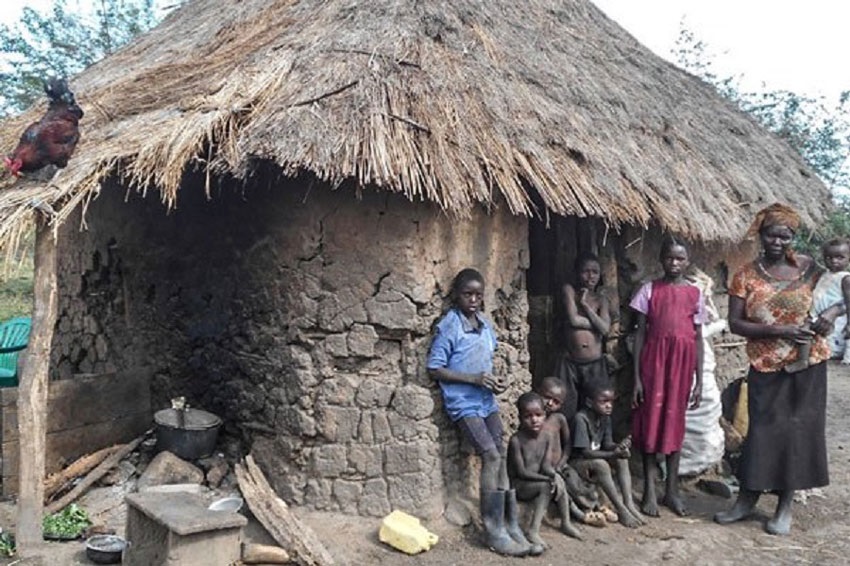
Our challenges against the vicious attacks on Indigenous People’s Human Rights Defenders (IPHRDs) endure.
Indigenous Lumad sanctuaries attacked by state-sponsored tribal paramilitaries, Wet’suwet’en land defenders arrested for defending their territories, and the list of Indigenous leaders, activists and defenders victimized by criminal violence and repression grows.
From targeted harassment to cold-blooded killings, the reported attacks point to Indigenous communities and non-indigenous supporters’ defense of rights.
Most of the cases, if not all, remain unsolved until now. Impunity seems to benefit giant private corporations, powerful State agents, military, paramilitary and vigilante forces. In silencing all resistance to big corporate foreign and local developments and State-sponsored projects on Indigenous lands, violence through criminalization, harassment and barbaric assault become the norm.
IPMSDL continues to call on all indigenous communities and non-indigenous defenders to contribute their voice to amplify our call: Stop the attacks!
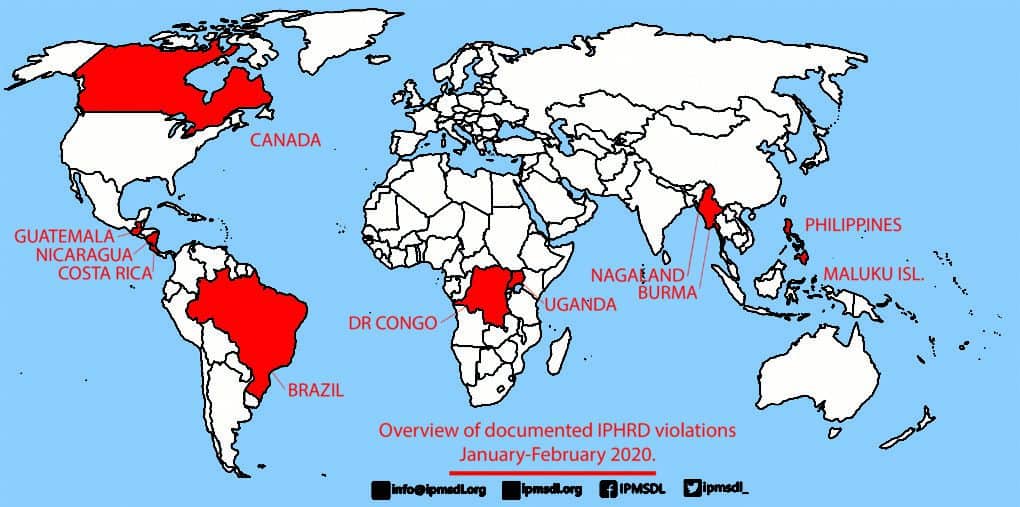
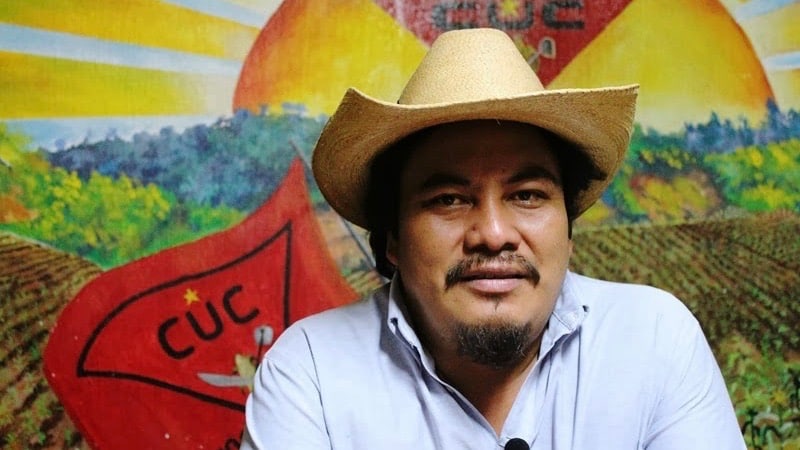
Guatemala
Persecution of Daniel Pascual Hernandez
Coordinator-General, Comité de Unidad Campesina (CUC)
This January 14, Maya K’iche leader Daniel Pascual Hernandez of Committee for Peasant Unity (CUC) goes to court to face defamation, slander and injury charges filed by a businessman, right-wing columnist and founder of “Foundation against Terrorism,” Ricardo Méndez Ruiz. Daniel Pascual received death threats and survived assassination plans in 2013 while defending the land of indigenous peasants from a cement manufacturing plant by company in San Juan Sacatepequez .
Daniel Pascual has criticized the “Foundation against Terrorism” for spreading misinformation about CUC and other leaders. The case was suspended in 2016 and currently resurfacing amid questions of irregularities, and the prevalent atmosphere of criminal persecution, assassination, and incarceration of indigenous leaders and human rights defenders in Guatemala.
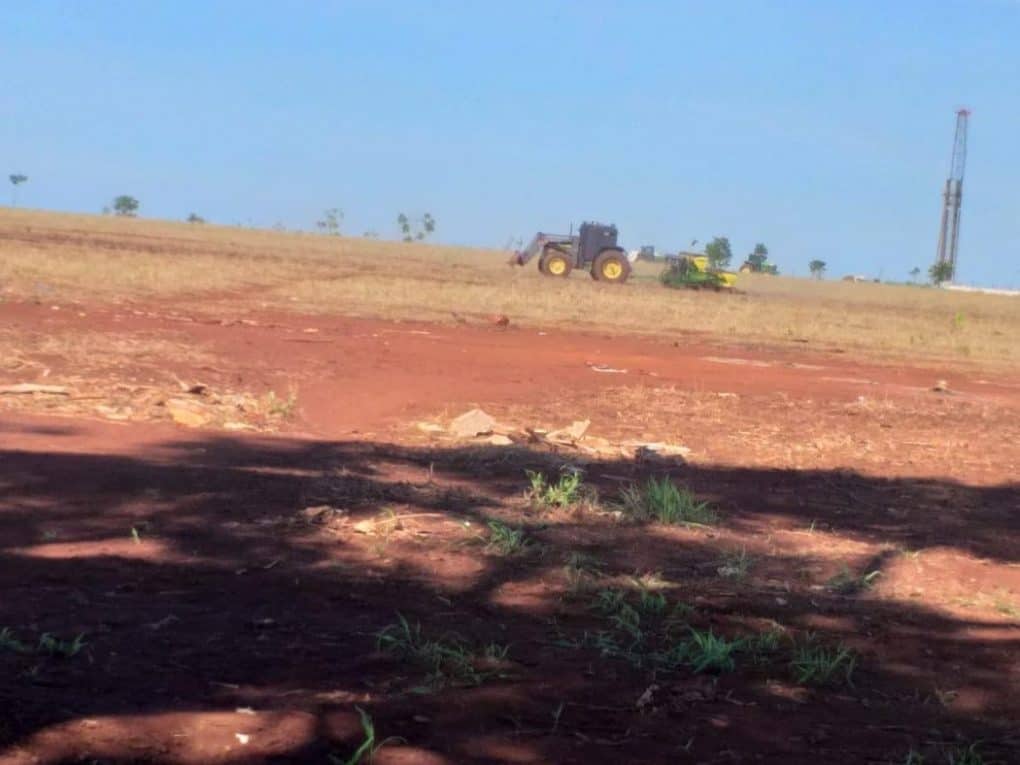
Brazil
Assault and forced eviction of Guarani Kaiowá
Dourados Indigenous Reserve in Mato Grosso do Sul
Morning of January 16, houses of indigenous Guarani Kaiowa in Dourados Indigenous Reserve in Mato Grosso do Sul were crushed by a tractor used in planting soybeans. The houses and belongings of the residents were even set ablaze by the perpetrators after demolition. When indigenous Guarani Kaiowa tried to stop the tractors, the police came and retaliated with gunshots. The shooting resulted in one resident losing his sight and another one paralyzed.
The Dourados Indigenous Reserve is targeted by a private soy plantation company. Last January 2 to 3, Guarani Kaiowa families were assaulted by the private security guards of the company resulting in injuries of multiple residents, and a 12-year-old boy who lost three fingers after handling a dropped grenade. Given the escalating violence, the public defender’s and human rights group requested police intervention but to no avail.
Philippines
Killing of IP advocate Jay-ar Mercado
Volunteer, Bigkis at Lakas ng mga Katutubo sa Timog Katagalugan (BALATIK)
Last January 25, Jay-ar Mercado was in Bulalacao, Oriental Mindoro in an indigenous Mangyan community when he was arrested and murdered by suspected state agents of 4th Infantry Battalion ng Armed Forces of the Philippines. For days, his family searched for his body going through the delaying tactics of the military and government units, and only recovered it on February 5. Mercado’s death follows the Duterte government’s crackdown on indigenous and human rights defenders including those who work against development aggression and militarization of indigenous communities.
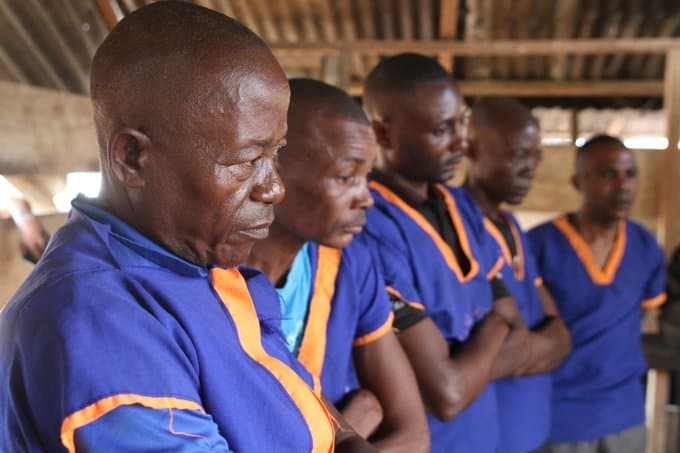
DR Congo
Illegal incarceration of five villagers
Tshopo province, DR Congo
For five long months, five villagers of Tshopo province were put behind bars without any formal charges in relation to their defense of land against Canadian palm oil company Feronia Inc. Among those arrested was the village chief of Yalifombo. Only last January 28 were the five villagers learned of their cases — damages to Feronia’s property and physical injury. The villagers’ arrest last September 2019 was prompted when they confronted Feronia for dumping toxic wastes, causing death and serious illnesses. Much earlier, villagers and rights group forwarded their complaints to DEG (German development bank) citing human and labor rights violations of Feronia, including the complicity of British, American and European development aid agencies supporting the company.
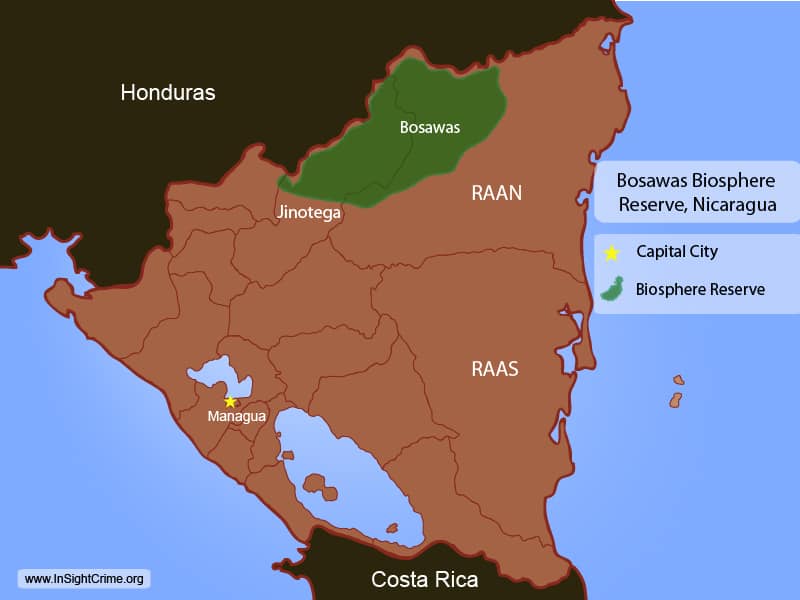
Nicaragua
Killings of Mayangna Indigenous
Indigenous Alal community, Bosawás Biosphere Reserve
Six indigenous Mayangna leaders were killed in Alal community located inside the Bosawás, Nicaragua, last January 29. The killings came after the series of attacks against indigenous communities linked to land grabbing. Two others were injured, 10 were kidnapped and 16 houses were set on fire forcing the community to evacuate. The attack was carried out by at least 80 armed men alleged to be working for illegal loggers and big cattle farmers.
Bosawás, Central America’s largest and protected rainforest, is under siege with the influx of non-indigenous settlers hired by ranchers. Thousands of hectares have been illegally cleared for timber logging and gold mining while the Nicaraguan government remains slow in addressing environmental plunder and previous cases of killings, kidnapping and assault against indigenous rights.
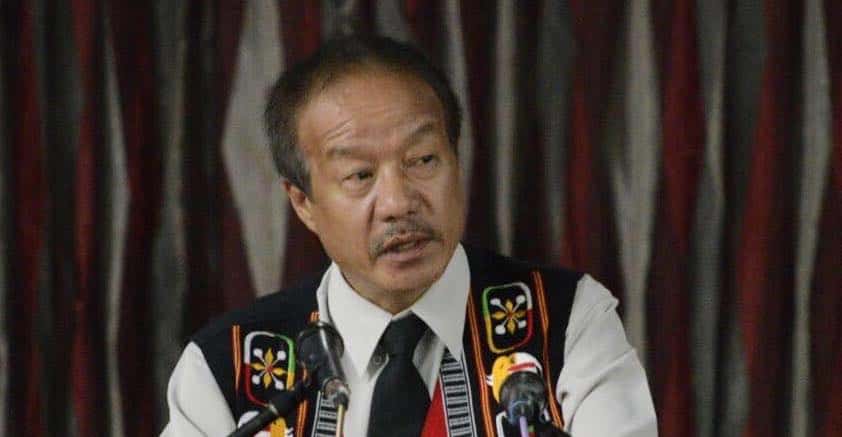
Nagaland
Travel blockade on Neingulo Krome
General-Secretary, Naga People’s Movement for Human Rights (NPMHR)
On February 5, while boarding a flight to Bangkok, rights activist and general secretary of the Naga People’s Movement for Human Rights (NPMHR) was prevented by the Indian Central government from traveling without any explanation. Krome is a known national and international activist speaking for the Naga movement for self-determination and human rights.
Peoples’ movement in Naga, civil society groups, indigenous and human rights groups continue to assert their self-determination and territory for years. With the Peace Talks between India’s Central government and the liberation movements of Naga, repression on social movements, resource plunder and economic exploitation, political and military domination have strongly affected communities and development of peace negotiations.
Costa Rica
Shooting of Costa Rican IP Defenders
Indigenous Bribri and Brörán in Térraba
Indigenous Bribri Mainor Ortiz Delgado was shot in the leg on February 9 while tilling his land in the Térraba, Salitre indigenous territory southeast of Costa Rica. Two weeks later, Yehry Helmut Rivera, from the Brörán community, was shot late at night by a group of angry mobs on February 24. Mainor Ortiz, a member of Rio Azul community, and Rivera, actively works in protecting indigenous lands facing threats of occupation from non-indigenous trespassers. Mainor Ortiz has been a constant target of harassment, death threats, and frustrated murder in 2013, 2016, 2017, 2018 and 2019. Similarly, Rivera experienced brutal beating in 2013 from illegal loggers.
The attack on Mainor Ortiz and the murder of Rivera seems to be a repeat of Bribri leader Sergio Rojas’ assasination. In Costa Rica, the laws governing the recognition of the land and rights of Indigenous Peoples, and the search for justice for indigenous leaders killed, remain unsolved.
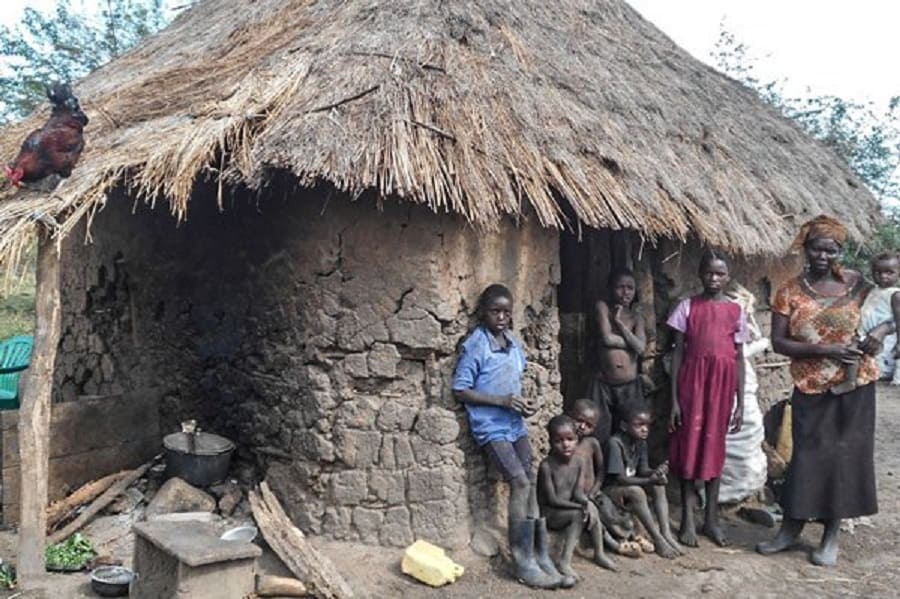
Uganda
Forced eviction on 35,000 Kiryandongo natives
Kiryandongo District, Uganda
Around 35,000 Kiryandongo natives occupying more than 9,000 acres of land were evicted in the first week of February to pave way for large scale farming. Primary schools, churches and health centers were demolished following the large-scale plantation’s expansion. Agribusiness companies, including US-based Agilis Partners and its company Joseph Initiatives, are supported by the Uganda government’s claim that the native’s territory was an “empty space and unoccupied public land” open for private businesses.
But the natives assert customary ownership. Since 2018, reports said that companies started evicting residents without consultation, proper compensation and reported police harassment.
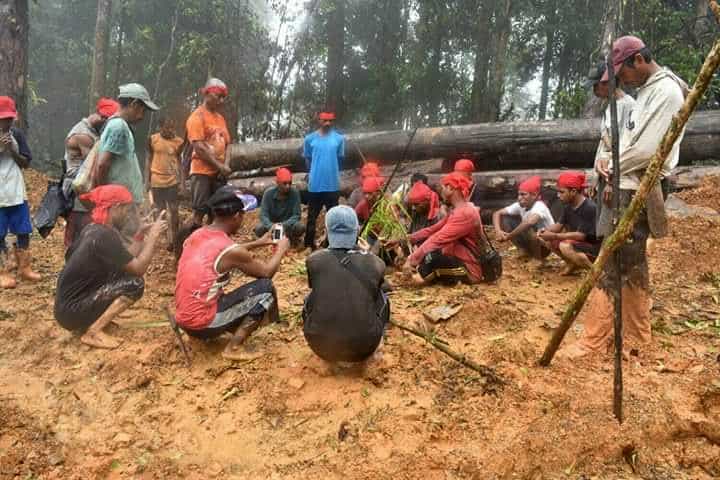
Indonesia
Arrest of Maluku indigenous
Sabuai village, Siwalat district, Eastern Seram
Twenty-six Maluku indigenous peoples from Sabuai village were arrested last February 24 after staging a protest to block a logging company operating in their customary area. Four of them were released while 22 remain incarcerated. During the blockade, Maluku indigenous protesters chained the heavy transport equipment but the police immediately arrested them. Mount Ahwale forest area in East Seram is rich in high-value wood. But this mountain is also the site of historical and legacies of residents’ ancestors. Under the customary laws of Sabuai indigenous community, the logging activity is illegal, yet the forestry agency insists that the land is open for business and development.

Kawthoolei
Burma Army attacks displacing 300 Karen Families
Mutraw District, Kawthoolei State in Burma
Fighting between Karen soldiers and Burma Army forced the displacement of 300 villagers this February. According to Karen National Union (KNU) Mutraw District, around 2,000 more villagers are on the brink of running to escape the fighting. The firing of artillery shells in Taku Der village, which started early February, is ignited by the Burma Army to forward the Burma government’s road construction projects.
A total of 2,137 people from 253 households, including 417 children under five are at severe risk from the shelling and fighting. The KNU and Burma central government has signed a Nationwide Ceasefire Agreement, which the Burma Army violates, according to KNU.
Reference:
Beverly Longid, Global Coordinator
info@gmail.com
Related posts:
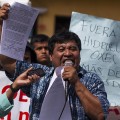
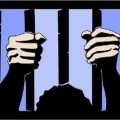 5 community land rights defenders arrested by Gomba district police, detained
5 community land rights defenders arrested by Gomba district police, detained
 Retaliation: 3 land rights defenders imprisoned and tortured without bringing them before the court
Retaliation: 3 land rights defenders imprisoned and tortured without bringing them before the court
 28 land defenders in Mubende district to suffer death on conviction
28 land defenders in Mubende district to suffer death on conviction
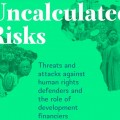 Development financiers fuel human rights abuses – New Report
Development financiers fuel human rights abuses – New Report
You may like
WITNESS RADIO MILESTONES
Top 10 agribusiness giants: corporate concentration in food & farming in 2025
Published
2 weeks agoon
June 19, 2025
Today a handful of agribusiness corporations have consolidated unprecedented control over the world’s food supply, with devastating consequences for farmers, consumers and the planet. A new report by ETC Group and GRAIN examines the state of corporate concentration in six sectors critical to agriculture: commercial seeds, pesticides, synthetic fertilisers, farm machinery, animal pharmaceuticals and livestock genetics.
Corporate consolidation is increasing in most of these sectors and four of them– seeds, pesticides, agricultural machinery and animal pharmaceuticals– now meet the definition of an oligopoly, in which four companies control more than 40% of a market. Concentration can be even higher at the national level, as is the case with synthetic fertilisers.
Top findings from the report include:
- Oligopolies dominate key sectors: Bayer, Corteva, Syngenta, and BASF control 56% of the global commercial seeds market, and 61% of the pesticides market.
- Profiteering amid global crises: Agribusiness giants have exploited crises like the Ukraine war and the COVID-19 pandemic to inflate prices. Fertiliser companies, for instance, saw revenues soar by 57% from 2020 to 2023, with some accused of price gouging.
- Digital and biotech expansion: Corporations are rapidly integrating AI, gene editing, and digital platforms into agriculture through partnerships with Big Tech companies. These technologies enable data extraction from farmers, facilitate carbon credit schemes, and tighter control over food systems—while raising concerns about biosafety, privacy, and corporate monopolies.
Source: grassrootsonline
Related posts:

 A corporate cartel fertilises food inflation
A corporate cartel fertilises food inflation
 Food inflation: The math doesn’t add up without factoring in corporate power
Food inflation: The math doesn’t add up without factoring in corporate power
 African governments are giving in to corporate pressure and undermining local seed systems – report
African governments are giving in to corporate pressure and undermining local seed systems – report
 The United Nations Food Systems Summit is a corporate food summit —not a “people’s” food summit
The United Nations Food Systems Summit is a corporate food summit —not a “people’s” food summit
WITNESS RADIO MILESTONES
Land grabbers evict 360,000 Ugandans in 2024
Published
7 months agoon
November 20, 2024
A staggering 363,021 Ugandans were displaced due to forced land evictions between January and June 2024, according to a new report by Witness Radio Uganda.
The report documented 90 cases of land evictions during this period, with nearly four incidents occurring weekly, affecting over 15,126 people and threatening 5,060 hectares of land nationwide.
The Central region was the epicenter, recording 52 eviction cases, followed by 24 in the Western region, eight in the Northern region, and six in the Eastern region. Alarmingly, the report estimated that 2,160 Ugandans face eviction daily, with 723 hectares of land at risk of being grabbed every day.
VIOLENCE AND HUMAN RIGHTS VIOLATIONS
Despite government promises and directives from President Museveni to halt evictions, land grabbers have routinely ignored these orders, often resorting to violence. Armed security forces, private militias, and police were reported to have carried out the majority of the evictions.
Of the reported cases, 37 were enforced by armed gangs on behalf of evictors, 25 involved Uganda Police, five were carried out with the participation of UPDF soldiers, and four were linked to private security companies.
“The egregious levels of impunity exhibited by land grabbers have left communities defenseless, creating an environment where their human rights are trampled without consequence,” said Jeff Wokulira Ssebaggala, country director of Witness Radio Uganda.
He called for accountability and justice, warning that the unchecked power of influential individuals and entities leaves marginalized communities vulnerable and without recourse.
DRIVERS OF EVICTIONS: INDUSTRIALIZATION AND LAND-BASED INVESTMENTS
The report identified the government’s push for industrialization and land-based investments as the primary drivers of forced evictions. Land is increasingly targeted for oil and gas extraction, mining, agribusiness and tree plantations for carbon offsets. While some of this land is already under development, other parcels remain vacant but are guarded by military personnel and private security firms.
Ssebaggala emphasized that industrialization must balance economic development with the protection of smallholder farmers’ rights to land and food security.

TRAGIC STORIES
The report highlighted harrowing cases that underscore the human toll of forced evictions. In Nakasongola, smallholder farmer Dan Ssebyala was ambushed and killed by armed men following a confrontation over disputed land. The district has become a hotspot for violent evictions involving absentee landlords and powerful investors.
Ismael Bwowe, a disabled father of 20, recounted how his land was confiscated after he demanded fair compensation. He faced intimidation, arrests and false charges from state authorities, including being accused of robbing an influential individual. Bwowe claimed that Total Energies offered legal support and representation on the condition that he accept their compensation terms.
“I refused,” he said, adding that the pressure to relinquish his land remains intense. The report underscores the urgent need for reforms to address forced evictions, ensure accountability, and protect the rights of vulnerable communities. Without meaningful intervention, Uganda risks deepening inequality and undermining the livelihoods of smallholder farmers who are essential to the country’s food security.
FAMILY JAILED AMID LAND DISPUTE
The plight of Richard Ssebagala, his wife Prossy Namande, and their relative Anania Ngabirano, residents of Kabubu-Kabongo village in Nansana Municipality, Wakiso district, highlights the human toll of Uganda’s ongoing land disputes. The family spent nine months in prison following their arrest on January 10, 2024, under controversial circumstances.
ARREST AND ALLEGATIONS
The arrests occurred at 1am, during a raid by officers from Luweero police station. Police reportedly banged on the doors and forcefully detained the family, accusing them of aggravated robbery. However, the family believes the arrest was a tactic linked to a land dispute with Benon Ntambi, a man who allegedly grabbed their land.
Before the arrests, Ntambi had reportedly destroyed crops, including tomatoes, potatoes, and bananas, on the contested land. While the family was incarcerated, a new building was constructed on their land, which is now occupied, raising further questions about the motivations behind their detention.
CALLS FOR JUSTICE
The case has drawn attention from Witness Radio Uganda, which has urged the government to take immediate action to address land grabbing and illegal evictions. The organization emphasized the need to strengthen land laws and protect vulnerable communities from abuses.
It also called for greater accountability in institutions such as the Uganda Police Force, the army and land registries, which are often accused of corruption and favoritism toward the wealthy.
“The government must prioritize justice for victims of illegal evictions and address systemic corruption that leaves the poor defenseless against land grabbers,” Witness Radio Uganda stated.
BROADER CONTEXT
This case underscores the broader issue of land conflicts in Uganda, where vulnerable families are often caught in disputes with powerful individuals or entities. Advocacy groups warn that the failure to address these issues not only erodes public trust but also perpetuates inequality and injustice.
As the government faces mounting pressure to act, the story of Ssebagala and his family serves as a stark reminder of the urgent need for reforms to protect land rights and ensure justice for those impacted by land disputes.
Source: The Observer
Related posts:

 Local land grabbers evict villagers at night; foreign investors cultivate the same lands the next day
Local land grabbers evict villagers at night; foreign investors cultivate the same lands the next day
 Uganda: Land-grab victim communities will join counterparts in commemorating the 2024 International Day of Struggle Against Industrial Plantations.
Uganda: Land-grab victim communities will join counterparts in commemorating the 2024 International Day of Struggle Against Industrial Plantations.
 Mubende Land Grab: Witnessradio.org presents another petition to Land Inquiry Commission, Wants All Titles being used to evict Natives to be Investigated
Mubende Land Grab: Witnessradio.org presents another petition to Land Inquiry Commission, Wants All Titles being used to evict Natives to be Investigated
 A Nullity? Ugandans Query Constitutional Land Amendment Bill
A Nullity? Ugandans Query Constitutional Land Amendment Bill
WITNESS RADIO MILESTONES
Uganda: Community members violently evicted by security forces, allegedly related to EACOP; incl. co. responses
Published
7 months agoon
November 18, 2024
On 10 February 2023, more than 2,500 community members were forcibly evicted from their land in Kapapi village in Hoima district in Western Uganda by security forces, receiving no compensation or resettlement.
Witness Radio, an Ugandan non-profit organisation comprised of human rights investigative journalists, lawyers, and social workers, said that many people were wounded during the eviction, women were raped, and houses were destroyed.
Witness Radio said its investigations found that this eviction occurred to clear the path for the Tilenga feeder pipeline, part of the East African Crude Oil Pipeline (EACOP). According to Witness Radio, in 2022 Kapapi community members’ land was surveyed for the Tilenga pipeline and people were informed they would be compensated for the land. Instead, they were forcibly evicted, which Witness Radio allege was backed and financed by Swacoff Intertrade Company Limited, known to TotalEnergies. They also allege that guards from private security company Magnum Security were involved. Witness Radio has also found that dozens of local farmers who were evicted have been arbitrarily arrested and face criminal charges.
The Business & Human Rights Resource Centre invited TotalEnergies, Swacoff Intertrade Company Limited, and Magnum Security to respond to the allegations. TotalEnergies responded and stated that no land eviction activities had been carried out by or on behalf of TotalEnergies EP Uganda (TEPU) and EACOP Ltd and that none of the affected people are Tilenga or EACOP Project Affected Persons. Swacoff responded and said that the company has never engaged in forceful eviction of any sort and asserts that these allegations are completely false. Their full responses and rejoinders from Witness Radio are available below. Magnum Security did not respond.
Related posts:

 Uganda: NGO claims Agilis Partners & Great Seasons violently evicted locals to pave the way for agribusiness; Agilis Partners responds
Uganda: NGO claims Agilis Partners & Great Seasons violently evicted locals to pave the way for agribusiness; Agilis Partners responds
 A son of the community defender is shot dead, another critically injured in a retaliatory attack by security guards evicting locals off their land to give way to large-scale sugarcane growing.
A son of the community defender is shot dead, another critically injured in a retaliatory attack by security guards evicting locals off their land to give way to large-scale sugarcane growing.
 Breaking: Criminal trial for seven community defenders opposed to EACOP/Tilenga project forced land eviction has been fixed.
Breaking: Criminal trial for seven community defenders opposed to EACOP/Tilenga project forced land eviction has been fixed.
 Uganda: CSOs claim Agilis Partners forcibly evicting local communities to pave way for agribusiness; company did not respond
Uganda: CSOs claim Agilis Partners forcibly evicting local communities to pave way for agribusiness; company did not respond

A decade of displacement: How Uganda’s Oil refinery victims are dying before realizing justice as EACOP secures financial backing to further significant environmental harm.

Carbon Markets Are Not the Solution: The Failed Relaunch of Emission Trading and the Clean Development Mechanism

Govt launches Central Account for Busuulu to protect tenants from evictions

Top 10 agribusiness giants: corporate concentration in food & farming in 2025

Uganda’s top Lands Ministry official has been arrested and charged with Corruption and Abuse of Office, a significant event that will have far-reaching implications for land governance in the country.

A decade of displacement: How Uganda’s Oil refinery victims are dying before realizing justice as EACOP secures financial backing to further significant environmental harm.

Govt launches Central Account for Busuulu to protect tenants from evictions

Environmentalists raise red flags over plan to expand oil palm fields in Kalangala

Innovative Finance from Canada projects positive impact on local communities.
Over 5000 Indigenous Communities evicted in Kiryandongo District
Petition To Land Inquiry Commission Over Human Rights In Kiryandongo District
Invisible victims of Uganda Land Grabs
Resource Center
- LAND GRABS AT GUNPOINT REPORT IN KIRYANDONGO DISTRICT
- RESEARCH BRIEF -TOURISM POTENTIAL OF GREATER MASAKA -MARCH 2025
- The Mouila Declaration of the Informal Alliance against the Expansion of Industrial Monocultures
- FORCED LAND EVICTIONS IN UGANDA TRENDS RIGHTS OF DEFENDERS IMPACT AND CALL FOR ACTION
- 12 KEY DEMANDS FROM CSOS TO WORLD LEADERS AT THE OPENING OF COP16 IN SAUDI ARABIA
- PRESENDIANTIAL DIRECTIVE BANNING ALL LAND EVICTIONS IN UGANDA
- FROM LAND GRABBERS TO CARBON COWBOYS A NEW SCRAMBLE FOR COMMUNITY LANDS TAKES OFF
- African Faith Leaders Demand Reparations From The Gates Foundation.
Legal Framework
READ BY CATEGORY
Newsletter
Trending
-

 MEDIA FOR CHANGE NETWORK1 week ago
MEDIA FOR CHANGE NETWORK1 week agoA decade of displacement: How Uganda’s Oil refinery victims are dying before realizing justice as EACOP secures financial backing to further significant environmental harm.
-

 MEDIA FOR CHANGE NETWORK1 week ago
MEDIA FOR CHANGE NETWORK1 week agoGovt launches Central Account for Busuulu to protect tenants from evictions
-

 WITNESS RADIO MILESTONES2 weeks ago
WITNESS RADIO MILESTONES2 weeks agoTop 10 agribusiness giants: corporate concentration in food & farming in 2025
-

 MEDIA FOR CHANGE NETWORK1 week ago
MEDIA FOR CHANGE NETWORK1 week agoCarbon Markets Are Not the Solution: The Failed Relaunch of Emission Trading and the Clean Development Mechanism

